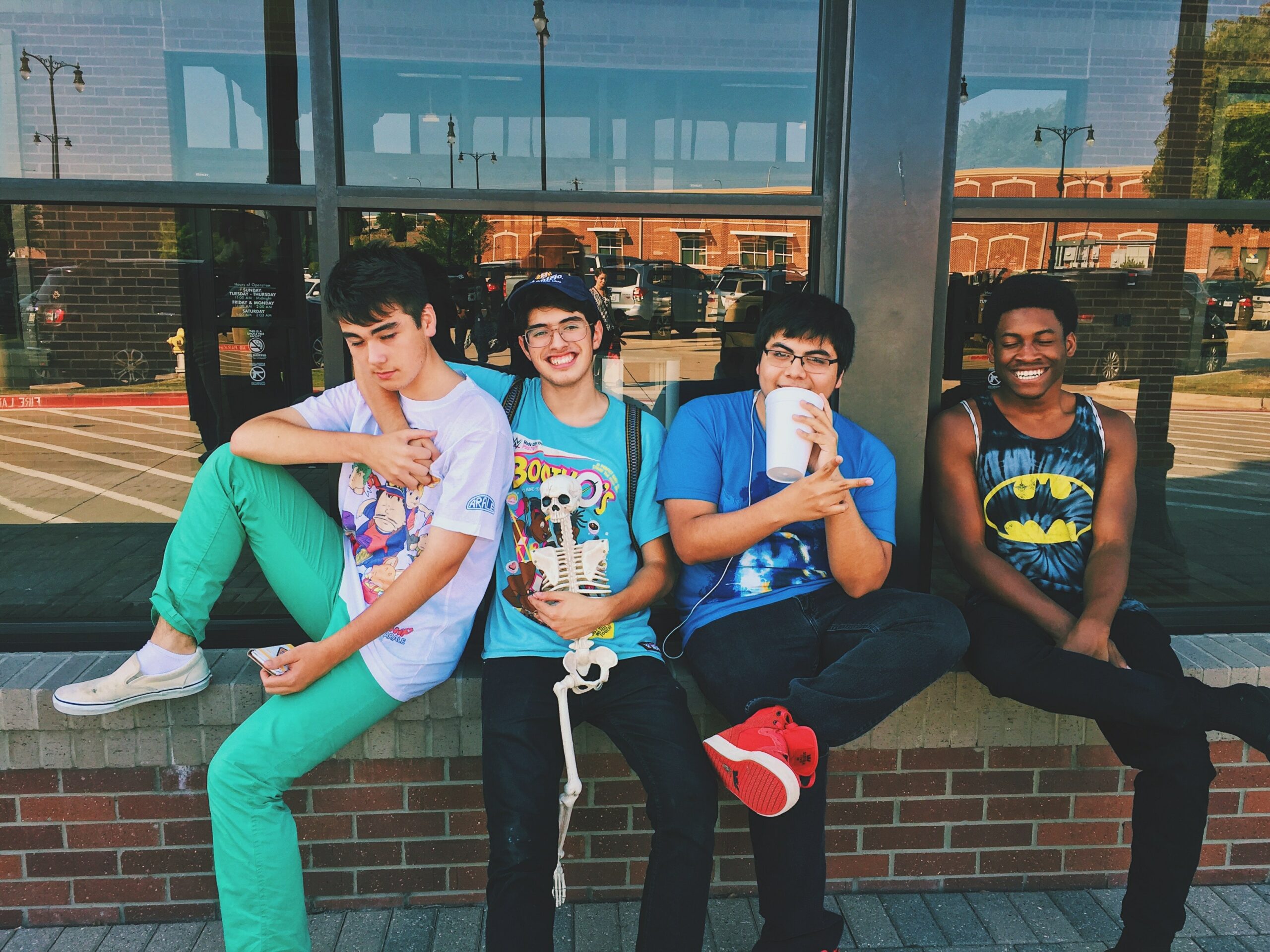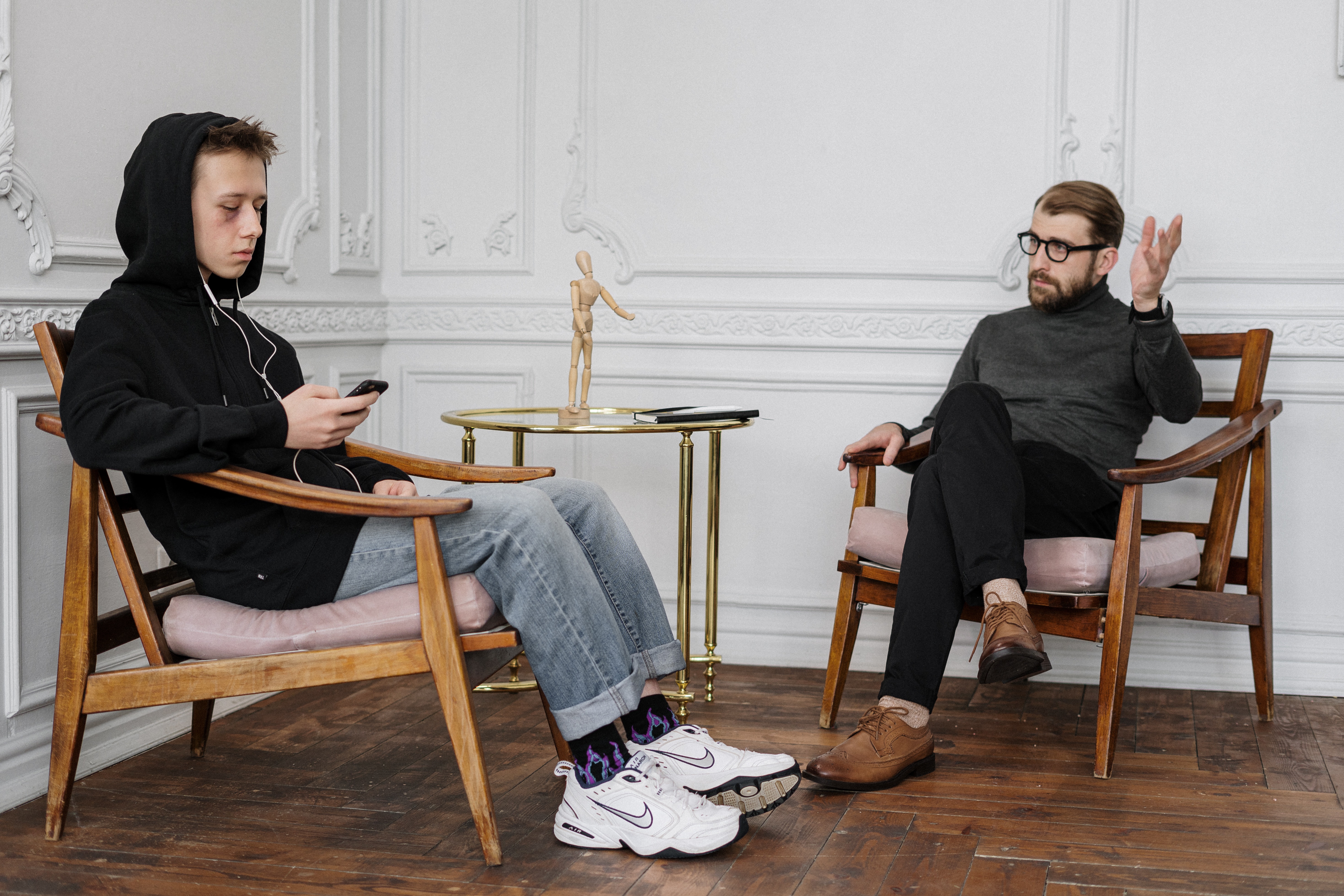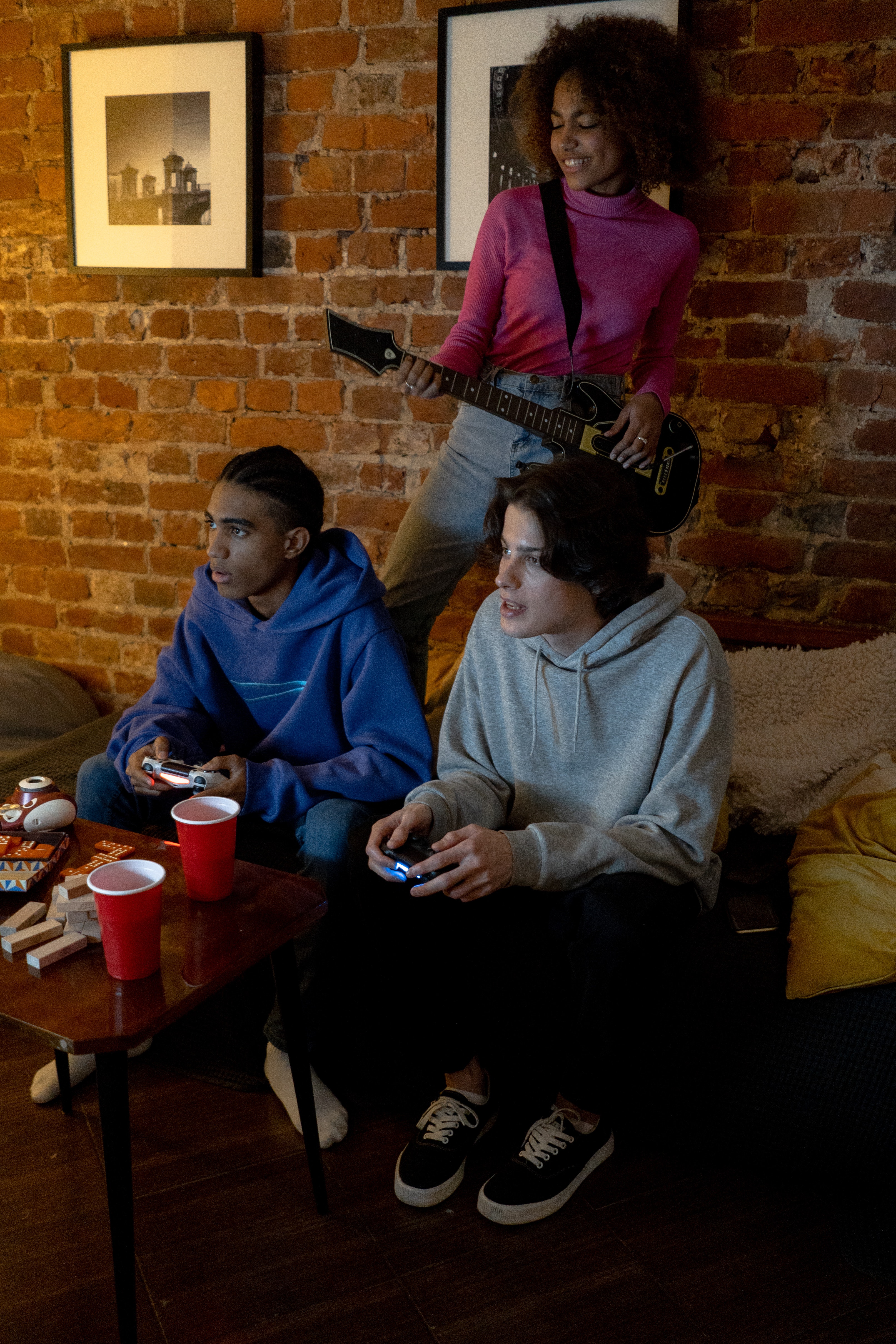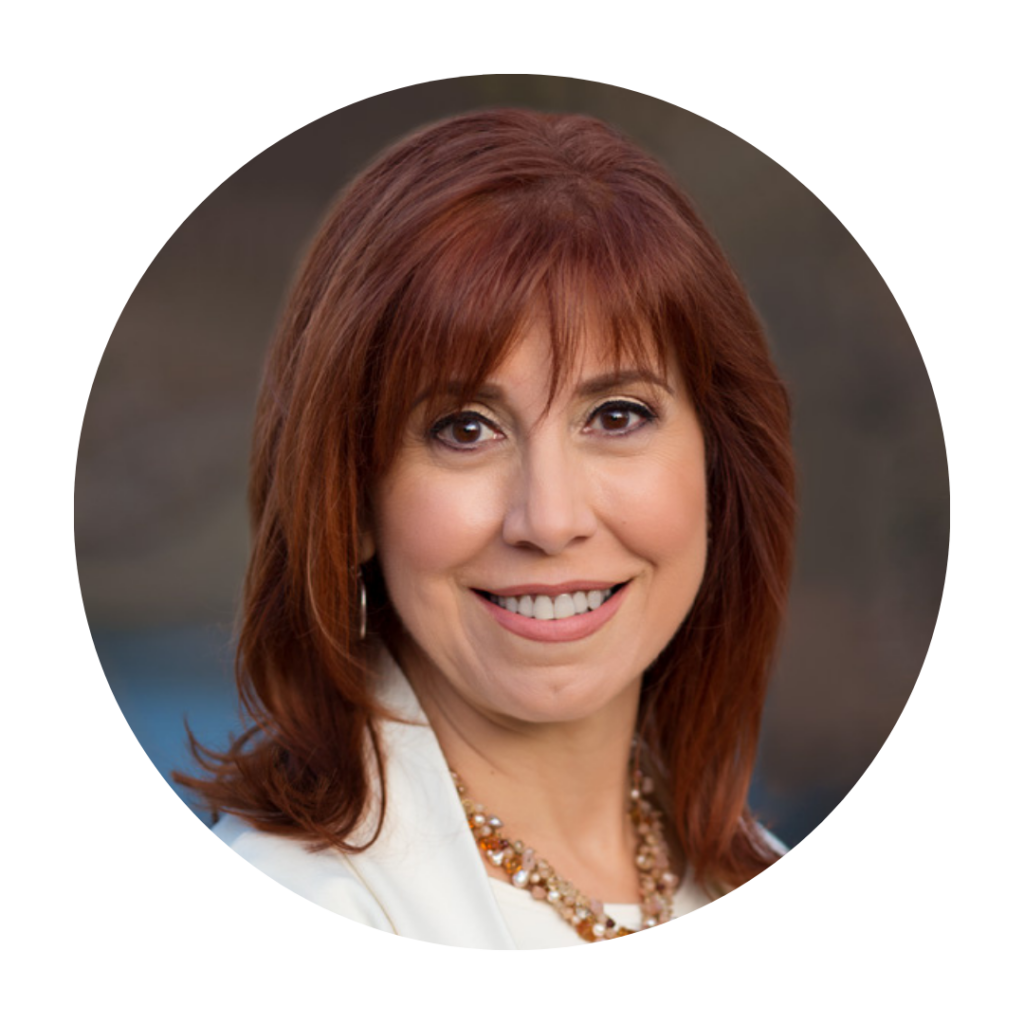
Zach is 15 year-old high school sophomore. Some say that 14-15 can be the hardest teen years. Insecurities about identity, body image, personality, and a need for acceptance without the freedom of driving can add seemingly insurmountable pressures for a young person. But those miseries and uncertainties can be compounded by the hostile input that occurs through excessive social media engagement.
Zach was a more serious student who tried to do well in school. He had a few friends who were academically focused like him. They kept to themselves to avoid bullying by those who had nothing better to do. Occasionally, Zach or one of his friends, was the target of attacks on social media, and it was so cruel because of the public humiliation he felt.

The more often it happened, the more he withdrew into himself. It seemed like life was about keeping his head down and enduring.
He was ashamed that he’d been singled out and rejected by the crowd, and he wondered if he’d ever overcome all this, or if he would fail at life because of his shame. Zach and his friends talked about all the heartache excessive social media engagement caused, and how it affected them. The most resilient of their friends, Noah, reminded them that by studying hard in high school, they’ll be better equipped in college, and one day the cruel kids will end up working for Zach, Noah, and their friends. He encouraged them to focus on the long game.
Pep talks like that helped. A little.
After his homework one night, Zach googled what he thought were his symptoms. He had begun to wonder if his social withdrawal was a psychiatric problem, or whether there was something wrong about him the bullies could see that he couldn’t.

In his search results, up came link after link to articles about major depressive disorder, anxiety disorders, and personality disorders like antisocial disorder. He found online tests and videos he watched to help him diagnose himself.
Then he researched the medications often found effective in treating his “symptoms.”
Trouble was, Zach’s “symptoms” weren’t actually symptoms at all. They were a natural part of surviving adolescence. Zach’s limited perspective as a 15 year old who was experiencing bullying online didn’t take into consideration his overall coping skills and challenges he was facing.
But he didn’t know that.
He decided to talk to his parents about his concerns and what he had learned on social media. YouTube videos had convinced him he had the classic symptoms of antisocial personality and general anxiety disorder. He asked his parents to help him see a psychiatrist.
His parents loved him and wanted him to feel their support. They agreed with Zach that excessive social media use among his high school students was destructive. They called around to get a recommendation for a psychiatrist, then called for an appointment.
When Zach and his mom arrived for his appointment, she told the doctor that Zach had researched his symptoms and discovered he had antisocial personality disorder. She asked if the doctor could prescribe medication for him.

The doctor raised his eyebrows.
“Antisocial, huh? Let’s take a breath and talk about this.”
The doctor proceeded to ask Zach some questions, listen to his answers, and then ask more. Before long, Zach was engaged in the conversation that included his childhood, his home life, the bullying at school, and his experiences with social media. They talked about his friends, and his relationship with his parents, and his performance in his classes.
Finally, the doctor sat back and smiled.
“Zach, first of all, you don’t have antisocial personality disorder, so I want to set you at ease about that. I think the bullying you’ve experienced face to face and on social media has triggered some anxiety for you. You seem to have healthy relationships with your friends, as well as your family, and you’re investing considerable effort to do well in your studies. These are signs of a healthy 15 year old guy who’s taken it on the chin several times due to thoughtless, ill-adjusted teenagers.

“I’d like to see you get some counseling to help you let go of the opinions of others, and I’m giving you a list of some counselors you can call. I’m also prescribing 6 months without social media, to give you relief from the cruelty you find there. Hopefully that time will give you the space you need to sever the influence that cruel, idle peers have tried to hold over you. Hopefully, you’ll find this excessive social media engagement is something you can live without.
“Here’s a prescription for a very low dose of anxiety medicine — No, it’s not a benzodiazepine — to help reduce your worrying while you work on these changes.”
“I’d like to see you in a couple weeks to check on how things are going and how the medicine is doing. Do you think you can work with this plan?”
“Yes,” Zach said. “I’m going to try. I’m sorta overwhelmed with the counseling, but I’ll try.”
And he did.
Six months later, Zach was feeling more like himself, had learned to ignore the irrelevant voices of “haters,” and had gained confidence in who he was through group counseling with other peers.
He was feeling more comfortable in his own skin, and worried less about what others said about him.

Meanwhile, across town, his friend Noah had been talking with Jeb about his sullen outlook, hopeless demeanor, and bitter attitude. Noah explained to Jeb what he himself had been through after his dad died. Noah told him he was already depressed, but medication wasn’t helping…then his dad died and he just gave up. He described to Jeb what that felt like, and how his grades dropped and he didn’t want to be around anyone.
Then, someone in his math class told Noah about IV ketamine treatment. He called the doctor the classmate told him about, went in for a long appointment (with a million questions) and started ketamine infusions. Already after the first one, he felt better and by the end, he felt like himself again. He had the strength to grieve his dad’s death, while still functioning at school and with friends. Noah said that sometimes you need help just to work on your life.
Jeb told him that he would talk to his parents about it.
Turns out, Jeb’s dad had heard the story from a friend at work how IV ketamine treatment had transformed the man’s daughter… that it was like a miracle after years of depression. He was immediately on board about Jeb’s interest in getting treated.
A couple months into the summer, Zach ran into Jeb, and he was his old self. He was back at his best self. They talked and laughed and caught up, and agreed to go to a movie on Saturday. Noah and Ethan joined them and the four had a great time. They talked openly about what an amazing year it had been, as though they had passed from dark to light.

IV ketamine treatment isn’t for everyone. There is a small percentage of people who don’t seem to benefit from it, at least so far. Others benefit more from changes in their lives…their infrastructure…to support their healthy frame of mind. They also may need changes in their environment — like friends they choose or excessive social media, for sure. But for those who need treatment to restore their brain structures and their resilience, ketamine treatment offers a rapid and robust antidepressant transformation in most people. Chances are, it can change your outlook and your life can be rewarding again.
If you suffer from depression, general or social anxiety, PTSD, or suicidal thoughts, and nothing has helped, call us.
We get up early and stay up late, studying, conferring, and seeking the latest research, finding ways to help you get better. Let us hear from you.

To the restoration of your best self,
